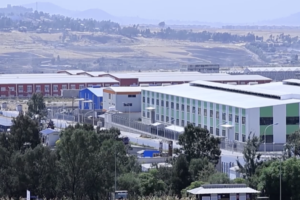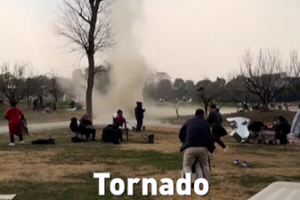
China’s Humanoid Robots Leap from Spring Festival Stage to Global Markets
China’s 2026 Spring Festival Gala showcased advanced humanoid robots now entering global markets, signaling a new phase in AI-driven industrial strategy.

Chinese Astronauts Host Lunar New Year Celebration in Space
China’s Shenzhou-21 crew celebrates Lunar New Year aboard Tiangong space station, blending cultural traditions with space technology achievements.

German Chancellor Merz Shares Spring Festival Greetings, Highlights Asia’s Cultural Ties
German Chancellor Friedrich Merz extends Spring Festival greetings, emphasizing cultural connections and Germany’s engagement with Asian communities worldwide.

Echoes of the Horse: Bridging Cultures Through Music and Equine Spirit
Global artists fuse music, AI, and equine traditions in ‘Echoes of the Horse,’ exploring cultural connections through innovative performances during the 2026 Lunar Year celebrations.

2026 Spring Festival Gala Showcases Cutting-Edge Humanoid Robots, Sparks Global Interest
China’s 2026 Spring Festival Gala highlights groundbreaking humanoid robot performances, sparking global discussions about technology’s role in cultural preservation and innovation.
U.S. and Iran Forge Path Toward Agreement, Says Iranian FM
Iranian FM Araghchi announces progress in U.S.-Iran talks, signaling a potential path to agreement amid ongoing diplomatic efforts in 2026.

Robot Dogs Disguised as Pandas Dazzle at 2026 Spring Festival Gala
China’s 2026 Spring Festival Gala in Yibin featured 100 robot dogs disguised as pandas, showcasing cutting-edge robotics and cultural creativity.

China’s 2026 Spring Festival Box Office Surpasses 1.5 Billion Yuan
China’s 2026 Spring Festival box office revenue exceeds 1.5 billion yuan, signaling strong recovery in cultural consumption and entertainment sector growth.

China’s Jiaolong Submersible Marks New Era in Deep-Sea Exploration
China’s Jiaolong submersible completes 419th dive, pioneering new deep-sea research phase with advanced ‘one ship, two submersibles’ operational model.

Los Angeles Asks: What Defines the ‘Chinese Dream’ in 2026?
CGTN’s Ask China campaign addresses questions from Los Angeles on the ‘Chinese Dream,’ generational values, and STEM success, highlighting China’s societal vision in 2026.
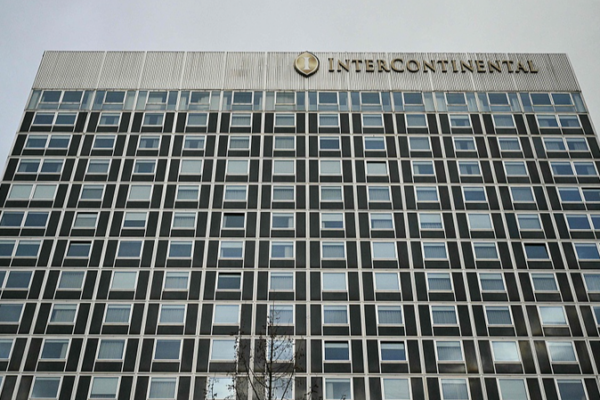
Ukraine Peace Talks Resume in Geneva Amid Global Scrutiny
Trilateral Ukraine peace talks begin in Geneva with US, Russian, and Ukrainian delegates addressing territorial disputes and security frameworks amid heightened international attention.

Iran-U.S. Nuclear Talks Conclude in Geneva Amid Stalled Progress
Latest Iran-U.S. nuclear talks end without breakthrough as sanctions disputes persist. Military drills in Hormuz and heightened U.S. deployments add pressure.

Spring Festival 2026 Sees Record Inbound Tourism Amid Visa-Free Push
China’s 2026 Spring Festival attracts record global visitors, driven by expanded visa-free policies and cultural appeal, boosting tourism and cross-cultural engagement.

China’s 2026 Spring Festival Box Office Surpasses 1.1 Billion Yuan
China’s 2026 Spring Festival box office hits 1.1 billion yuan, driven by diverse film releases and a new government subsidy initiative to boost cinema attendance.

Nigeria, US Strengthen Military Ties with Capacity-Building Deployment
Nigeria launches joint military training program with 100 US personnel to enhance counter-terrorism capabilities and regional security infrastructure.

Kazakhstan’s Shaidorov Makes History with Olympic Gold, Aims to Inspire Youth
Kazakhstan’s Mikhail Shaidorov wins historic figure skating gold at Milano Cortina 2026, discusses Olympic journey and plans to develop winter sports in Central Asia.
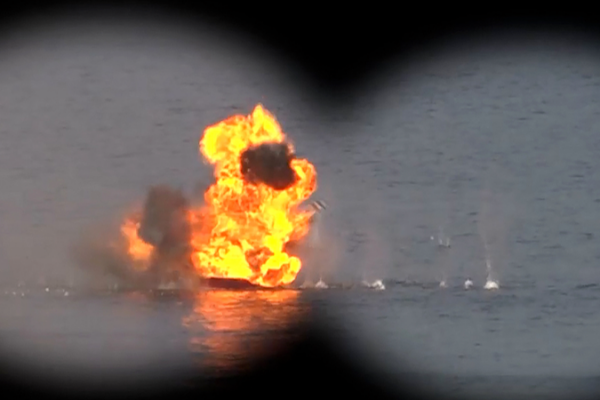
Iran Conducts Live-Fire Drill in Strait of Hormuz, Temporarily Closes Key Waterway
Iran temporarily closes sections of the Strait of Hormuz for live-fire military exercise, testing advanced weapon systems in key global trade route.
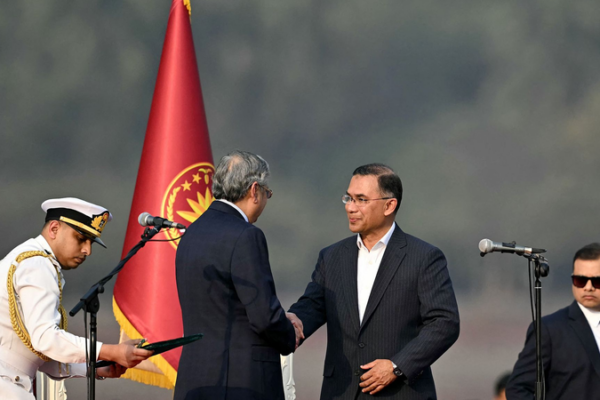
Tarique Rahman Sworn In as Bangladesh Prime Minister After BNP Election Victory
Tarique Rahman becomes Bangladesh’s PM after BNP secures parliamentary majority in February 2026 elections, marking a major political shift following Sheikh Hasina’s 2024 resignation.
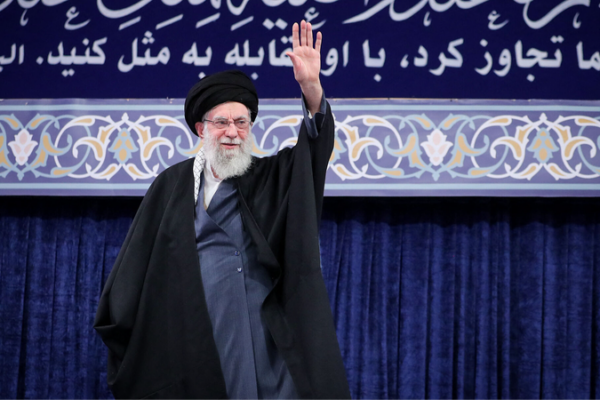
Iran’s Khamenei Vows Resilience Against U.S. Military Threats in 2026
Iran’s Supreme Leader Ali Khamenei asserts U.S. cannot destroy Iran amid ongoing nuclear talks and heightened military tensions in West Asia.

China’s Tech Revolution Transforms Urban and Rural Livelihoods in 2026
In 2026, China’s tech advancements in drones, robotics, and cross-strait collaboration are driving economic growth and improving lives across urban and rural areas.


